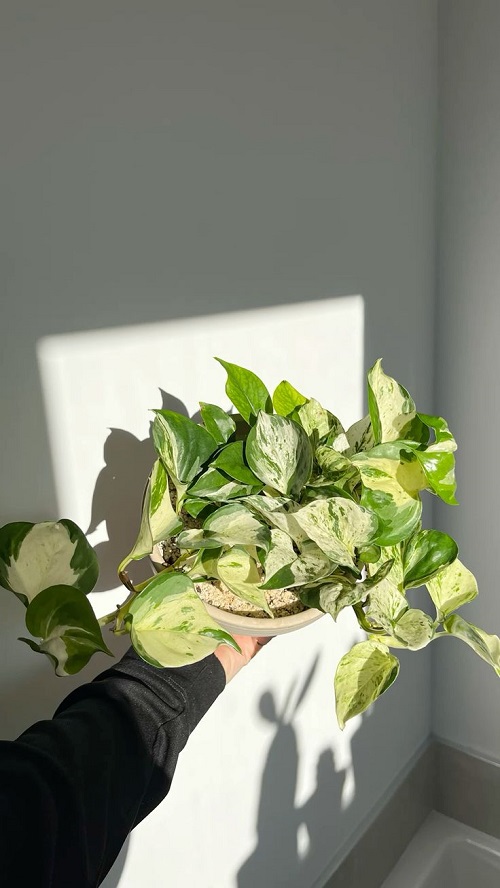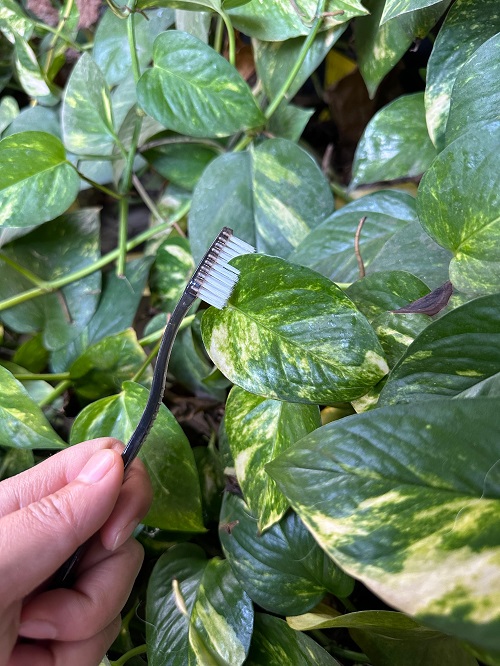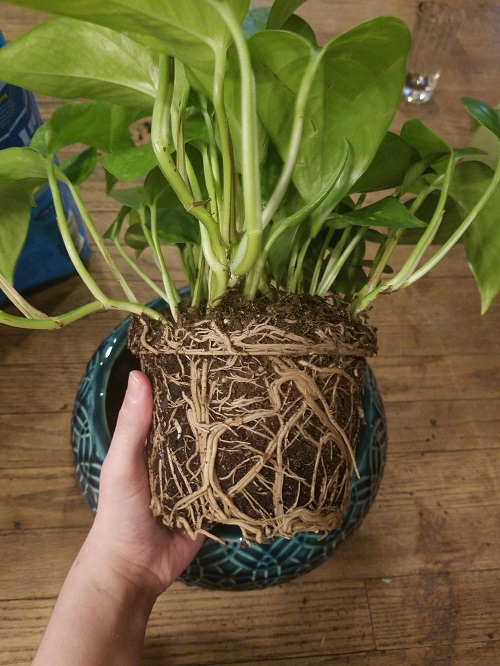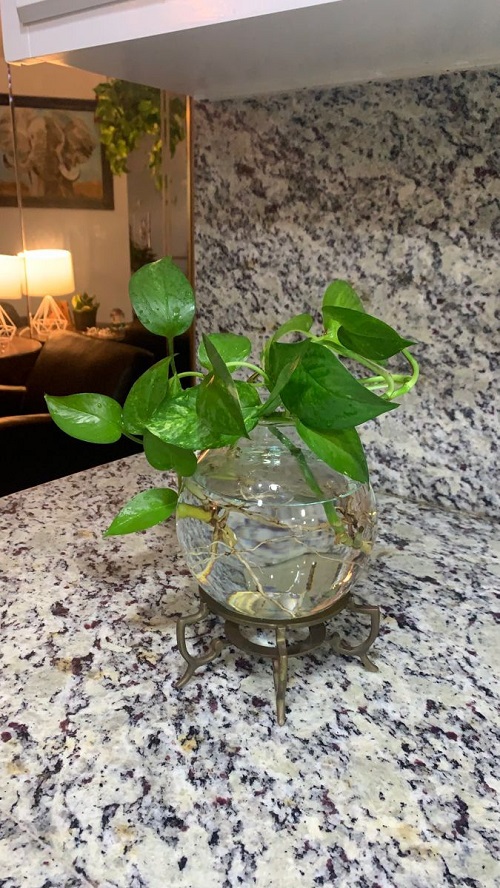Want a lush Devil’s Ivy? Find out Why Using a Toothbrush Can Boost Your Pothos Growth and how to do it the right way!

Looking for a simple hack for your pothos plant? Believe it or not, a simple toothbrush can be your secret weapon for lush, vibrant growth!
This surprising tool can gently till compact soil around the roots, allowing them to breathe and absorb more water and nutrients.
But that’s not all! Here’s how this everyday item can transform your Pothos from a struggler to a thriving showstopper!
How Using a Toothbrush Can Boost Your Pothos Growth
1. Clean Foliage for Better Light Absorption

Dust and dirt can settle on the leaves of your Pothos over time. Such a layer of grime blocks sunlight and makes it harder for the plant to perform photosynthesis, hindering growth.
Now, you can always wipe it with a soft cloth, but sometimes greasy, sticky residue from oils and sprays or honeydew from pests like aphids can stick to the foliage; at that time, cleaning with a soft-bristled brush is a quick and easy way to get rid of all this.
Just wet the brush slightly and use it to wipe each leaf and its underside, but do it gently and then wipe off with a cloth. This is especially useful when pothos has pest infestation!
The leaves will shine, increasing the plant’s appeal, and they will absorb light better than before. If you want even better results, clean the leaves with a brush and then use this hack!
2. Brushing the Leaves Stimulates Growth

This might sound far-fetched, but brushing your Pothos leaves can help it grow. In their natural habitat, plants benefit from rain and wind, which naturally clean and stimulate their leaves.
Wind speeds of less than 3–5 miles per hour can help plants grow thicker and stronger stems. Plus, when wind pushes on a plant, it helps in the distribution of auxin, a hormone that stimulates cell growth.
You cannot bring the wind indoors, but you can mimic it by brushing the leaves gently. How cool is that?!
3. It Helps Deter Pests

Pests like spider mites and mealybugs often hide on the undersides of the leaves of this beautiful vine. If you spot them, brush the leaves with a toothbrush, and they’ll be gone for good.
The bristles can dislodge tiny pests before they become a bigger problem. But don’t use a dry toothbrush—dip it in a solution of water and mild dish soap to get rid of the plant bugs and keep infestations at bay.
4. Brushing Keeps the Roots Healthy

You can use a toothbrush to gently scrape away mineral buildup or algae on the soil’s surface so that water and nutrients can reach the roots efficiently. You can also do a bit of tilling with its end!
Whenever you’re repotting your Pothos, make sure you get rid of the old soil and also loosen a bit of substrate around the root ball with the help of a toothbrush.
You can also use it to untangle matted roots. But always scrap the growing medium gently, making sure that it won’t break the root ball.
Pro Tip: Many people do not know this, but if your Pothos gets root rot, you can use a toothbrush dipped in rubbing alcohol to remove the decaying tissue from the affected roots.
5. Toothbrush for Propagation

Using a toothbrush can also help your Pothos cuttings root faster. Brushing the nodes (the bumps on the stem where leaves grow) helps gently scrape away the outer stem layer, exposing the inner tissues where root growth starts.
Do light scrapping once before you put the cuttings in water. Be gentle and do it very lightly; we don’t want the nodes to get damaged. You can also brush the stems to ensure no dirt restricts root development.
Tips for Using a Toothbrush for Pothos
- Go with a soft-bristled baby toothbrush to avoid over-scratching or damaging the leaves.
- Before using it on your Pothos, dip the bristles in lukewarm water for better cleaning.
- If you use soap for cleaning, gently rinse the leaves with a damp cloth to remove any residue.
- You can clean your Pothos plant every two to four weeks or whenever you notice sticky residue or pests.
It’s time to try it for yourself! Don’t forget to share your Pothos’ growth journey in the comments below. Here’s another secret for growing a giant Pothos plant!


